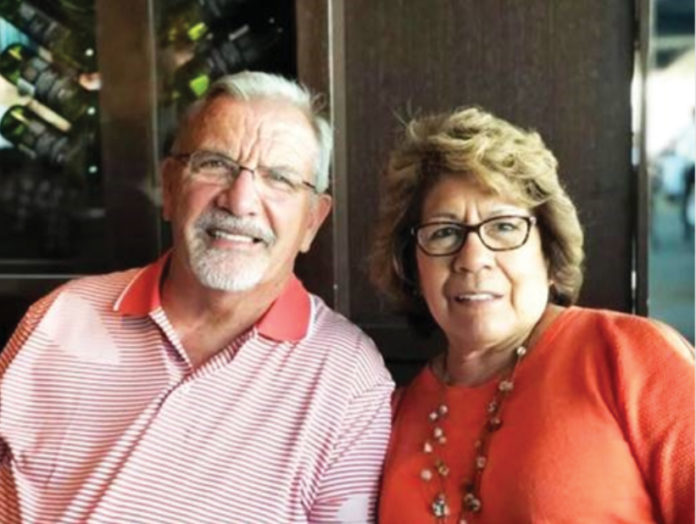
Just before Christmas of last year, Ron and Josie Shafer, of Enid, fell ill and began experiencing symptoms of COVID-19.
The Shafer’s daughter, Tina Crane, had the virus in July of 2020 and was familiar with how it manifested and how the symptoms presented. The low-grade fever. The sore throat. The exhaustion. She knew that her parents, in their late 60’s (Ron, 69) and early 70’s (Josie, 71) had likely contracted COVID-19.
Over the next few days, their conditions steadily declined. Crane knew how vulnerable her parents were to the virus and its side effects. “I was able to convince them to get tested on Dec. 29,” Crane said. “Their symptoms continued to worsen.”
Both Ron and Josie tested positive for COVID-19. According to Crane, Josie’s symptoms were worse than Ron’s, but she was very concerned about both parents and what might happen without proper care and treatment.
Crane, an employee with INTEGRIS Health, was recently made aware of an infusion used in cancer patients that had received emergency approval from the FDA late last year for use in COVID-19 patients who meet certain criteria. The infusion was helping to relieve symptoms and was keeping scores of COVID-19 positive patients out of the hospital.
“The bamlanivimab (BAM) infusion contains a monoclonal antibody that replicates the body’s natural antibodies needed to fight the virus,” INTEGRIS Cancer Institute of Enid Manager Miranda Martinez, MSN, RN, said. “These antibodies are created in a laboratory to target certain antigens in the body. In the bamlanivimab case, it targets the COVID-19 antigen.”
INTEGRIS Bass has been administering this infusion in COVID-19 patients since Nov. 25, shortly after its approval for this use.
According to Martinez, eligible patients range from age 12 and up, but must meet certain criteria if under the age of 65. COVID-19 positive patients age 65 and older within the 10-day window of symptom onset automatically qualify for treatment. Martinez emphasized the infusion must take place within 10 days of when symptoms first begin.
Once positive COVID-19 test results are received within the 10-day window of developing symptoms, and criteria are met, a patient may then be referred by a physician to receive the infusion.
Once the patient arrives, the nurse will gather information about symptoms and ensure the patient meets qualifications. The nurse then begins the infusion through an IV. The treatment itself takes one hour. Following the infusion, the patient must stay an additional hour to be monitored for side effects.
Because Ron and Josie started experiencing symptoms right before Christmas, and the 10-day window that must be adhered to receive the infusion was closing, Crane knew that they had no time to waste.
The Shafer’s received the infusion on Dec. 31, just inside the 10-day window and right before the New Year’s holiday and upcoming weekend.
From that point, Crane said her parents’ symptoms began to alleviate, and in less than two weeks, major symptoms had disappeared.
“I truly believe that the BAM infusion helped keep my mother, whose symptoms were worse, out of the hospital,” Crane said. “I am relieved they are back to normal now and grateful things turned out well for us.”
Unfortunately, that has not been the case for thousands of older Americans. According to the CDC, around 80 percent of the more than half a million COVID-19 deaths in the United States were 65 or older.
While the Shafer’s experienced symptoms considered more severe, anyone who is COVID-19 positive and meets the criteria may receive the infusion, even with mild symptoms, if it is within the 10-day window.
“Cases are now declining as people are becoming vaccinated and adhering to CDC mask and social distancing guidelines,” Martinez said. “However, people are still testing positive, and we are still administering BAM to those who fit the criteria. We are still giving the infusion every day, and we encourage anyone who tests positive and meets the criteria to take advantage of the opportunity.”
Eli Lilly, the producer of the BAM infusion, reported a 70 percent rate of reduction in hospitalizations and deaths in those who were given the treatment. Martinez said that local numbers are depicting the same rate of success.
“We believe that since its emergency clearance from the FDA last year, hundreds of lives have been saved as a result of the BAM infusion.”












